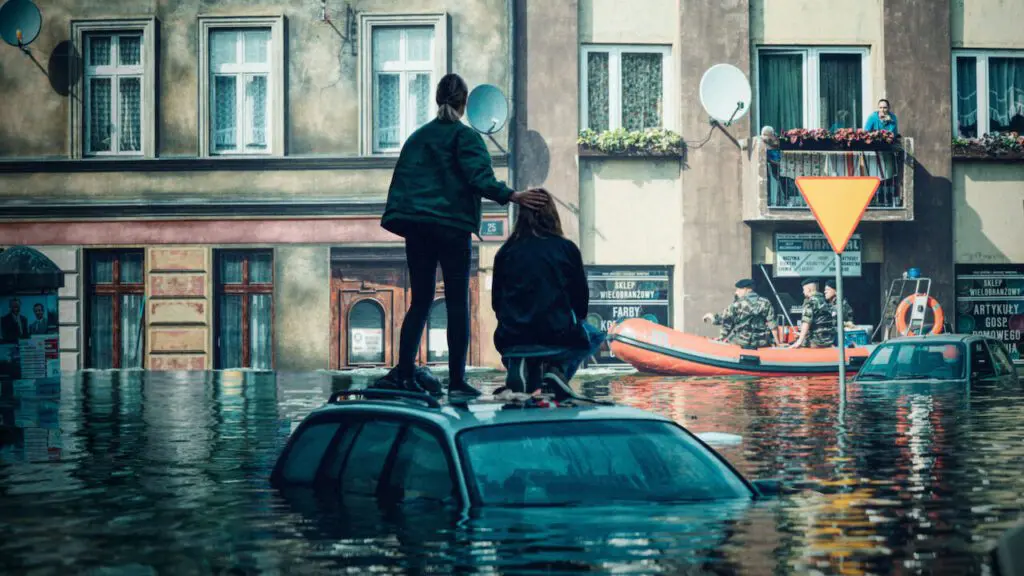Summary
By populating the recreation of a real-life disaster with fictional characters, High Water manages to have the best of both worlds.
Netflix’s Polish original series High Water is about many things, but it’s mostly about denial. It turns out people don’t want to admit that their homes are due to be flooded, or their maps are thirty years out of date, or that their administrative mistakes might have, on balance, cost hundreds of lives and billions of dollars.
Like Apple TV+’s Five Days At Memorial, this is a show about a real-life natural disaster and the decisions that were made before, after, and in the midst of it, but like HBO’s Chernobyl and Netflix’s own – admittedly fictional, but only just – Don’t Look Up, it’s really about a very smart person trying to convince people who don’t want to listen to them of something that should have been quite obvious in the first place.
The obvious thing in this series is the impending flooding of Wroclaw, Poland, and its surrounding areas, a real disaster dubbed the Millennium Flood that occurred in the late ‘90s. It’s obvious because the hydrologist that writers Kasper Bajon and Kinga Krzeminska have invented, Jasmina Tremer, proves unequivocally that it’s going to happen within half an episode, and everyone else, from provincial executive Jakub Marczak (Tomasz Schuchardt) to rival experts to Wroclaw’s citizens, is adamant that it’s all baloney.
In any show like this, the no-nonsense woman who tells deer hunters to shoot themselves in the d*ck and has a name that is especially well-suited to disaster management – calling her Tremer is like calling an expert mechanic Jack Wrench – is always right.
High Water is based on a true story, then, but what’s smart about it is that it uses this very real, very tragic event as a focus, but builds a fictional character drama around it, using made-up experts and administrators as stand-ins for relevant issues and viewpoints that sprung up before, during, and after the flood.
It’s an approach that allows the show to be quite condemnatory about the whole thing without risking any potentially litigious responses. Nobody, perhaps ironically, comes out especially clean.
But the show is more interesting for its artistic license. Tremer and Marczak have a history, for instance, that wouldn’t have been shared by the real people involved, and that history makes for decent texture.
The whole thing can be structured in a more dramatic way, without too much attention having to be paid to who, exactly, said or did what, and at precisely what time. The overall sweep of events seems accurate, but the connective tissue is more conveniently binge-able, which is perhaps just as well.
There are probably all kinds of questions you could raise about this approach if you were that way inclined; matters of taste and decency and accuracy and respect, some of which will matter to different people. But it’s hard to argue with the results. The worst thing High Water could have been, after all, was dry.
Read More: High Water Ending Explained




